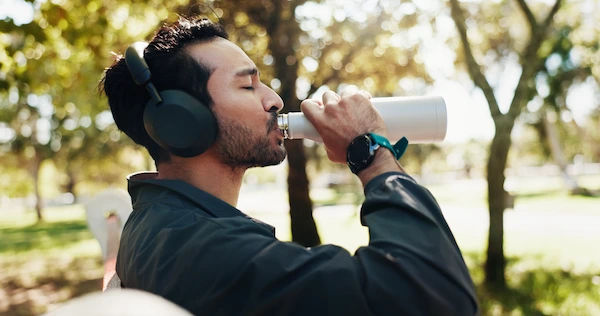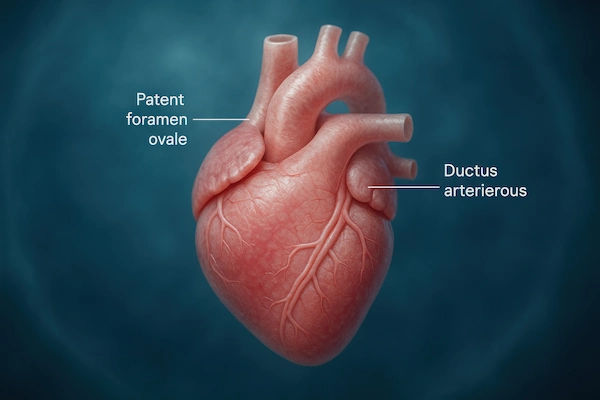Understanding Immunohistochemistry and Its Uses
Learn about immunohistochemistry (IHC), its uses in disease diagnosis, and how it helps detect specific proteins in tissue samples for accurate medical evaluation.


When you or a loved one is dealing with a health concern, especially something as serious as cancer or other complex diseases, doctors often use advanced tests to get a clearer picture of what’s happening inside the body. One such test is Immunohistochemistry (IHC). If your doctor has recommended an IHC test, you might be wondering what it is, why it’s needed, and how it helps in diagnosis and treatment.
This article will explain IHC in simple terms, what it is, how it works, and why it’s important for your health.
What Is Immunohistochemistry (IHC)?
Immunohistochemistry (IHC) is a special laboratory test that helps doctors identify specific proteins in tissue samples. These proteins can be markers for diseases like cancer, infections, or autoimmune disorders.
Think of IHC as a detective tool, it uses antibodies (tiny proteins that recognize and attach to other specific proteins) to highlight abnormal cells in a tissue sample. This helps doctors determine:
The type of disease (e.g., which kind of cancer).
How aggressive the disease might be.
The best treatment options.
Consult a Top Pathologist
How Does IHC Work?
Here’s a simple breakdown of how an IHC test is performed:
1. Tissue Sample Collection – A small piece of tissue (biopsy) is taken from the affected area.
2. Staining Process – The tissue is treated with special antibodies that attach to specific proteins.
3. Microscopic Examination – A pathologist examines the stained tissue under a microscope. If the antibodies attach to certain proteins, they change color, making abnormal cells visible.
For example, in breast cancer, IHC can detect the presence of HER2 protein—if it’s overproduced, certain targeted therapies can be used.
Why Is IHC Important?
IHC is a powerful tool because it:
Helps in Accurate Diagnosis – Some diseases look similar under a regular microscope, but IHC can distinguish between them.
Guides Treatment Decisions – Certain cancers respond better to specific treatments based on protein markers.
Predicts Disease Behavior – It helps doctors understand if a tumor is likely to grow slowly or aggressively.
Common Uses of IHC
Below are few common uses of IHC,
1. Cancer Diagnosis & Subtyping
IHC helps identify different types of cancers, such as:
Breast Cancer (checking for HER2, ER, PR receptors).
Lung Cancer (detecting PD-L1 for immunotherapy).
Lymphoma (distinguishing between Hodgkin’s and non-Hodgkin’s).
2. Infectious Diseases
It can detect viruses (like HPV) or bacteria in tissues.
3. Autoimmune & Neurological Disorders
IHC helps diagnose conditions like multiple sclerosis or lupus by identifying abnormal immune responses.
What to Expect During an IHC Test
If your doctor recommends an IHC test:
A biopsy or tissue sample will be taken (usually during a previous procedure).
The sample is sent to a lab where staining and analysis are done.
Results may take a few days to a week, depending on complexity.
How Can You Prepare?
Since IHC is performed on already collected tissue, you don’t need to do anything special. However, if you’re undergoing a biopsy, follow your doctor’s instructions regarding fasting or medications.
Managing Health After an IHC Test
Once the results are in, your doctor will discuss the findings and next steps. Depending on the diagnosis, treatment may include:
Targeted therapy (if specific proteins are found).
Chemotherapy or radiation (if needed).
Regular monitoring (for slow-growing conditions).
Lifestyle Tips for Better Health
While IHC itself doesn’t require lifestyle changes, maintaining good health can support treatment:
Eat a balanced diet (rich in fruits, vegetables, and lean proteins).
Stay active (as recommended by your doctor).
Avoid smoking and limit alcohol.
Follow up regularly with your healthcare provider.
When to Consult a Doctor
If you have symptoms like unexplained lumps, persistent pain, or unusual weight loss, consult a doctor. Early diagnosis improves treatment success.
Need an IHC Test or Expert Advice?
If your doctor has recommended an IHC test or you have concerns about your diagnosis, you can book a consultation with an expert pathologist or oncologist through Apollo 24|7. Early and accurate testing can make a big difference in your treatment journey.
Final Thoughts
Immunohistochemistry is a vital tool in modern medicine, helping doctors diagnose diseases more precisely and choose the best treatments. If you or someone you know is undergoing an IHC test, understanding its purpose can ease anxiety and empower you to make informed health decisions. Always remember early detection and personalized treatment plans can significantly improve outcomes. Stay informed, stay proactive, and trust your medical team to guide you through the process.
Consult a Top Pathologist
Consult a Top Pathologist

Dr. Rohinipriyanka Reddy
General Practitioner
9 Years • MBBS
Hyderabad
Apollo 24|7 Clinic, Hyderabad

Dr. M L Ezhilarasan
General Practitioner
6 Years • MBBS
Visakhapatnam
Apollo 24|7 Clinic - Andhra Pradesh, Visakhapatnam

Dr. D Bhanu Prakash
General Practitioner
10 Years • MBBS, AFIH, Advanced certificate in critical care medicine, Fellowship in critical care medicine
Hyderabad
Apollo 24|7 Clinic, Hyderabad

Dr. Shaik Abdul Kalam
General Practitioner
3 Years • MD (Physician)
Visakhapatnam
Apollo 24|7 Clinic - Andhra Pradesh, Visakhapatnam
(150+ Patients)

Dr. Praveen Kumar Mukka
General Physician/ Internal Medicine Specialist
21 Years • MBBS, MD General Medicine
Hyderabad
Apollo 24|7 Clinic - Telangana, Hyderabad
(100+ Patients)




